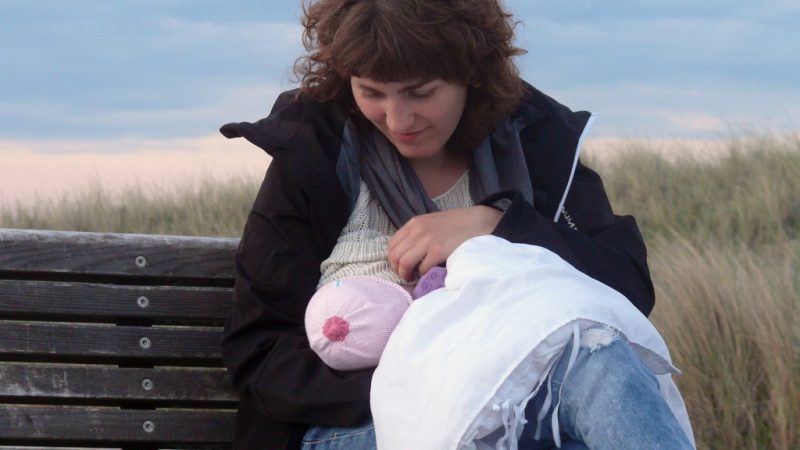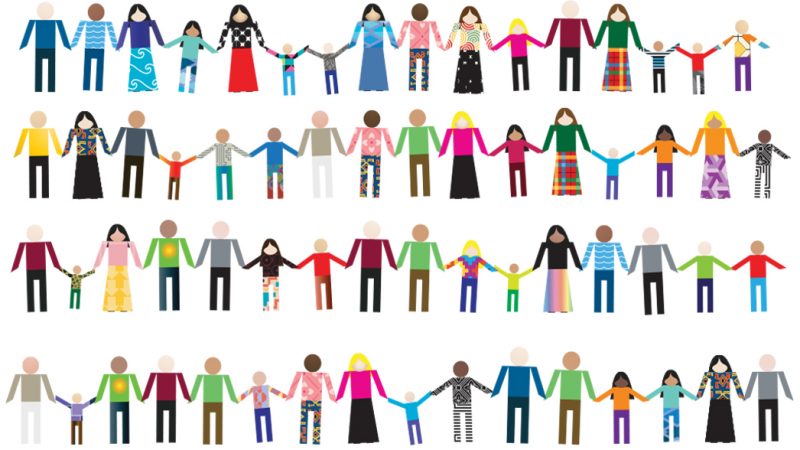
The Baby Biome Cohort Study – a Q&A with Peter Brocklehurst and Nigel Field

Dr Nigel Field

Prof. Peter Brocklehurst
Welcome to Parenting Science Gang, Dr Nigel Field and Prof. Peter Brocklehurst.
Please could tell us a bit about yourselves and what the Baby Biome Cohort Study is about?
Nigel Field: I’m Nigel Field. I’m a public health doctor and researcher specialising in infection at UCL. I’ve been working on Baby Biome Study since 2012-13 – little did I know quite how many conversations I would have about poo!
Peter Brocklehurst: Hi all. I am an obstetrician and public health doctor in Birmingham and am leading the Baby Biome study with Nigel.
Nigel: Very briefly, the main aim of Baby Biome Study is to try and understand more about how babies are first colonised by bacteria and other microorganisms (their microbiome), and how this affects their long term health.
Where will the study be recruiting from, and how long a duration are you hoping for?
Nigel: The duration is hopefully for the lifetime of the babies – because we want to follow what happens to the children and relate that back to their early life microbiome.
We have already done a pilot study of around 3500 mums and babies in London and Leicester, but we want to get funding to expand this to about 40,000 mothers and babies and recruit from across England, Wales and Scotland (sorry N Ireland at the moment!).
Currently the plan is to sample up to one year, after which the microbiome diversity is closer to adult patterns. We think the first months may be the critical ones when it comes to affecting later health. The follow up will be for 5y in the first instance, but our aim would be to follow up for much longer…!
Peter: The UK has done a lot of these cohorts in the past, the first one just celebrated its 70th birthday!
PSG N: Looks like you two won’t be retiring any time soon! 😀
Why do you need so many participants?
PSG D: This isn’t really my area but I’d thought that these profiling studies were quite complex and heavy duty so the numbers tended to be smaller – I may have missed the point of what you are trying to do. Can you explain the study design outcomes etc a bit more?
Peter: We need big numbers because we are interested in working out whether factors such as mode of birth or antibiotics affect the risk of a child developing conditions such as asthma As asthma does not affect all children we need “enough” children with asthma to be abel to look at the link between the microbiome and the risk of asthma – which means we need to recruit a lot of women and their babies and wait until the children get older.
PSG E: Wow that’s a lot of participants!
Nigel: You’re right that this is huge, which makes it very exciting and also difficult and expensive. The reason we need large numbers is that we will want to compare, for example, babies who develop asthma with those who don’t (control group) and we will need enough babies with early life poo samples in each group….So, for a condition like asthma that is present for about 10% of 5y old, we need 40,000 people to get 4,000 cases. However, we have found that we get a baby poo sample in around 50-60% of cases, so that is ‘only’ 2,000 with asthma and a poo sample….
And we think we need around 2,000 to be able to detect clinically meaningful differences between the controls and cases.
What aspects of long term health do you hope to investigate?
Nigel: We want to investigate a range of conditions, but also focus in the first instance on some really important health problems where there is evidence to support the hypothesis that the microbiome might have a role … so we are focusing on asthma and obesity as a starting point.
To clarify, is the “main” outcome you are interested in, asthma?
PSG D: If so, can you comment at all on (if I have this right) why that was chosen — in relation to burden on UK kids health, etc etc. thanks! But will you be looking at other adverse health outcomes too – if so is there primary/secondary focus etc.
Nigel: We are treating asthma as an exemplar condition if I can put it like that … it is common enough for us to be confident about the sample size, it is a major health condition affecting very large numbers worldwide, and it is increasing in prevalence and this is not well understood. Our other exemplar is obesity, but we will certainly be looking at a wide range of other conditions.
PSG D: Ok great thank you, that makes a lot of sense. Asthma got a lot of discussion in the recent RCPCH report so clearly the burden of ill health from this is worrying. (Also disparity wrt that and other European countries).
What sources will you use for collecting the data?
Nigel: The data sources are from the mums, the hospitals, GPs and national healthcare records – and all the sample analysis
Will you be able to collect data/info on things like health issues, diet or genetics that can affect microbiome composition?
Nigel: Yes, we collect information about the mum and baby when they give birth, and will extract clinical information from the electronic records held by the hospital and GP (with the participants’ consent), and we also ask mums to complete a short questionnaire at 6m and 12m after birth.
PSG F: Will you be collecting any biological data or samples from the Mums? For example, in cattle (I work on the reproductive tract microbiome in cattle!) we know that if you alter a cows diet, the metabolites in her milk (and her gut microbiome) changes. Will you be taking into account maternal health, genetics, diet etc and how that may influence a baby microbiome?
Nigel: Interesting – I work on STIs in humans too – and thinking about urogenital tract microbiomes. Anyway, you’re absolutely right about diet, genetics, and many many other factors which influence the microbiome. We will collect as much information as possible, but also important to remember that we are focusing on the first colonisers in the baby’s gut at a time when there is much less diversity and the microbiome is ‘simpler’
PSG F: Ah right, important to note though that Mums health/diet may potentially impact that early colonisation. I’m sure we could have an interesting chat about urogenital micro biome but that would be getting off topic a bit!
How will you recruit?
Nigel: We’ve shown in our pilot that we can recruit mums in hospital around the time they give birth, or when they attend hospital appointments during their pregnancy.
PSG C: Is there any exclusion criteria for recruitment? I guess a potential issue, especially in London, is that pregnant women are a very transient population, so it will be a challenge to maintain that level of follow up.
Nigel: We have very few exclusion criteria – although we will need to exclude mothers who plan to leave the country immediately after birth because we won’t have any way to readily follow them up. The aim will be to get an approximately ‘normal’ group of participants.
Peter: This is really important. We need long term follow-up so trying to ensure we recruit women who are not going to leave the country will be important.
Have you published anything from the pilot data?
Rachel Plachcinski: This is the first report from the pilot study
Will any of this research be made available to or used by formula manufacturers? (Other than it might be published publicly)
Peter: The study will collect data and biological samples to allow us to find out the relationship between the microbiome and long term health. The data and biological samples can be used by researchers, but they will have to apply through an access committee, with a good question and can only use the data for the purposes for which the data are provided. I cannot guarantee that this will exclude formula manufacturers, but this is not our intention.
How will we ever know what the NORMAL human microbiome consists of when we are three-four generations into not breastfeeding?
Peter: We do know what the normal microbiome looks like now. Feeding in early life is important for the microbiome in the baby, but as we get older our microbiome is affected by the food we eat, the people we live with (and the pets!) and other exposures like antibiotics
Are there any specific a priori hypotheses you are trying to test and how will you guard against biases ?
PSG D: … especially p-hacking etc – is it all exploratory at this stage?
PSH H: What does p-hacking mean please?
PSG D: It’s basically if you have huge amounts of data you can slice and dice it in a lot of ways so if you define a statistically significant result as p<0.05 that is statistically likely to occur in 1/20 tests just by chance alone. so you will get +ve results even if they aren’t “true” if you run enough analyses
Peter: We are taking p-hacking into account. We have a-priori hypotheses, but we are also creating a large data and sample archive for future use. Each study will have to justify their sample size and how they will deal with the issue of multiple testing
PSG D: Peter: that sounds v good thank you!!!
PSG D: Also that data will be avail to other researchers ??
Nigel: Yes – an important part of our application and study will be to create a major resource for open science, and will work with UK Data Archive and Metadac and others to support this.
How long are you hoping to study the cohort for (or get funding for in the first instance)?
PSG H: … and how soon will you be able to start publishing results?
Nigel: We were funded by the Wellcome Trust to do a pilot study, which we have completed. We’ve published some pilot feasibility findings, and we have some scientific publications in the pipeline. We are currently planning how to obtain funding for the larger study of 40,000.
Do we know how vaccines affect the babies’ biome?
PSG L: Has anyone ever looked at the impact of the oral rota virus vaccination on the baby biome?
Nigel: Good question – I actually don’t know about rota virus vaccination. I’ll have a look after we’ve finished. However, we are interested in how the microbiome might change the way (in a good or bad way) that children respond to vaccines.
PSG L: Thank you, it was the bit where they ask you to extra care with hygiene when changing babies nappy for two weeks after the vaccination that made me wonder.
PSG K: That’s because it is a live vaccine so can be passed on through the babies excrement
PSG L: Yes I am aware of that, it made me think of whether it would have more of an impact on the biome than an injected vaccine.
PSG M: But it’s a very small and theoretical risk I thought for rotavirus?
PSG Q: So you will be looking at how the microbiome might affect how a child responds to vaccines, but not the reverse i.e. how vaccines might affect the microbiome? I assume that every antibiotic containing vaccine would be coded as an instance of exposure to antibiotics? Makes you wonder if you’ll be able to find a big enough sample of entirely antibiotic free babies / children for a significant comparison?
Can you describe what types of samples you’ll be gathering at the beginning?
PSG N: … (I assume it would be pre-birth and immediately after birth?) and what you are doing to get the hospitals and birth centres on board with this? I ask because I gave birth at UCL and they denied my request for vaginal seeding if I needed a c-section because it wasn’t proven.
Peter: We are aiming to collect samples from the mum close to the time of birth – poo and vaginal swab. They cord blood form the baby at birth (after delivery of the placenta) and then poo form the baby at 7 days, 6 months and 12 months.
Is there any evidence that if someone has a c-section and they do seeding and swab over the baby that it helps with the baby’s biome?
Peter: The vaginal seeding issue is very unclear. We know that CS leads to a different microbiome initially but what this means in the long term we simply don’t know. And the potential problem with vaginal seeding is that a bug called Group B Strep, which about 25% of women carry, could in theory be transmitted to the baby which could cause problems – very rarely – but it can be very serious. If seeding does not affect the risk of allergies, then the possible harms may outweigh any possible benefits
PSG O: Is the risk of passing on GBS greater with seeding than it is with straightforward vaginal birth?
Peter: Passing on GBS may be higher because the process of introducing it to the baby may itself lead to infection. The risk is all theoretical at the moment – but it is this concern that leads people to be very cautious about its use
PSG P: Are any of the hospitals used for recruitment allowing vaginal seeding so this can be studied too?
Peter: We will definitely collect information about seeding as it happens in the study. This would be an ideal opportunity to find out whether seeding influences the microbiome – and if the numbers are large enough – whether this appears to make a difference to the risk of allergies. But that would then still need exploring in an randomised trial if our study suggested any benefit, to be sure it was true
PSG E: Fascinating!
I would be interested to know how much breastfeeding mitigates the effects of c-section delivery. The effect of administering antibiotics to newborns. Any problems with pathogens when seeding – strep B for instance.
Nigel: We agree that this is really interesting, and we will be collecting information about feeding practices and antibiotic use to try and tease apart the different drivers. Seeding has currently not got good evidence and there is definitely a concern about introducing pathogens.
PSG R: How can pathogens be passed which would be problematic when they’d have been there for a vaginal birth anyway? Probably an obvious answer
PSG B: litigation!
PSG I: I happened to be swabbed and tested positive for strep B earlier in my first pregnancy and was told I would be strongly advised to let them give my baby IV antibiotics after delivery… as it happened I had a section, but also had PROM so baby was given antibiotics.
PSG A: Yes, if you found to have group b strep infection in the last few weeks of pregnancy you are recommended to have antibiotics during labour. It’s quite dangerous for newborns.
I’d love to know about water birth and the microbiome!
PSG O: … (Partly because I often get asked about it) and my – basic – understanding is ‘we don’t know’. I’m also so interested in allergies, especially as a parent of a (home – birth pool – born, breastfed) child with severe allergies. I’m so excited to hear about this research!
PSG B: Have you read Maureen Minchins book?
PSG O: No but i’ve heard some of those theories…interesting
PSG B: The epigenetic theory. Really interesting!
Peter: You are right – we don’t know anything about the impact of water birth and the transmission of the microbiome form mother to baby. As water birth becomes more frequent it is possible there may be enough women taking part who have a water birth that we can get more answers about this – but even with 40,000 women we may still be limited by relatively small numbers. We will answer as many questions as we can – but this study cannot answer all of them
PSG Q: It would be interesting (but probably far beyond the scope of this experiment) to look at how much the constituents of the water that a baby is born into affect the biome e.g. relative levels of chlorine in the water may affect babies biome?
Is there any current evidence on how the biome influences the risk of developing allergies?
PSG A: Is there any evidence that probiotics (especially if had c-section or antibiotics in labour) might reduce chances of allergies developing?
Nigel: I think it is fair to say that there are lots of theories, and evidence that suggests the microbiome might have a role in causing allergies. The problem is that no one has done a large longitudinal study, following children over a long period of time to really understand whether the microbiome is the mechanism. That is what we hope to achieve with Baby Biome Study.
Will this study be large enough to offer a link from early biome to say likelihood to develop IBD like Crohn’s or ulcerative colitis do you think?
Nigel: We do hope to follow the children for their lifetime, but wouldn’t expect CD or UC to develop until young adulthood or later, so will be waiting a long time. As you may know they are also pretty rare in the population so might not get more than a few cases in the cohort of 40,000 – so we may not be able to do much on these conditions.
What breastfeeding data do you plan to collect?
PSG E: Are you taking data from mothers and / or official records e.g. medical notes?
If medical notes/ red books, are you aware that these are problematic as they aren’t a reliable record of BFing for many reasons – especially if you’re interested in to what extent babies are breastfed / formula fed and for how long.
(If you’re interested in the reasons these records sometimes aren’t very reliable, please let us know, this is an area we know a fair bit about as a group!)
Peter: We will be using routine data sources but we are also planning to collect data directly form women about their feeding as we know this is the only reliable way to collect these data. We also need to know about whether and when mums take antibiotics while breastfeeding to assess the impact of this on the babies microbiome
PSG E: Will you get collect data directly from the mothers throughout the cohort study e.g. through questionnaires? (And possibly the kids when they grow up?!)
Peter: To keep costs of the study manageable we will only be having 2 questionnaires from the mothers in the first year. But the possibility of collecting more information form mothers and children is always an option. the children could easily end up being followed up for life – if they are happy to participate
PSG N: Will you be taking swabs beyond 12 months? And are you planning to include breast and mouth swabs at any stage?
Peter: Not currently. We are aiming to take samples from within the first 12 months and then follow up the children until they are 5. Any future data and sample collection would require additional funding. But this is how previous birth cohorts have worked and funding comes in intermittently to follow up at specific time points.
PSG AD: Will you collect data on children who continue breastfeeding to term i.e. 2+ years – and possibly as long as 5 years or more?
Nigel: We are currently only collecting information about breastfeeding up to one year. Feeding is clearly a really important topic though – and one that we want to focus on.
With regard to feeding, would you be able to tease out things (differences) to do with exclusivity or lack of exclusivity of breastfeeding?
PSG D: It is often mentioned that “just one bottle” of formula can harm the baby’s gut, but I’m not sure that has ever been properly tested and may just be a hypothesis.
I do know a lot of mums who need to supplement with formula (e.g. with delays in milk coming in, other reasons) may feel very bad if they think this has harmed the baby, so it would be good to have solid evidence in what the effects of this actually are on health. (Separating out issues on the actual health impacts of supplementation from any effect of that on getting breastfeeding established).
Peter: Feeding is a really important part of the study. We think the impact of the microbiomes interaction with the immune system is very early in the babies life, so the food going in will have a really big impact on the bugs that grow and thrive. It is this early interaction between various exposures (mode of birth, antibiotics, feeding etc) that we want to tease out.
PSG D: Great… definitions are an important part of that. I appreciate the more granular any definitions are for exposures, the more work needs to be done, the cost increases and maybe even the no of participants can then reduce. However, for this bit it might need to be quite granular! Because complexity of feeding and variation/overlap. (e.g. baby can be breastfed but also formula fed at same time, cessation of breastfeeding, can have cessation of formula feeding supplement and switch back to exclusive breastfeeding, etc etc). Infant feeding survey (now discontinued) had very fine grained methods for capturing this in quite a precise way.
Peter: I agree that we need these data – in the pilot we used questions from the infant feeding survey and are planning to continue to do so in the main study.
PSH H: I’d be really interested in this too- I hate the way definitions of breastfeeding are put together so that any supplementing or early weaning at all means they no longer count as breastfed
PSG M: Exclusively breastfed.
PSH H: it’s just a personal bugbear that for the statistics used to talk about how bad the UK breastfeeding rates are, they generally only report on babies exclusively breastfed for 6 months (no supplementation ever, no early weaning. Because I had to supplement from 3 weeks my baby doesn’t count as breastfed in those stats despite how flipping hard I worked to keep feeding to 10 months!
PSG D: I would think for the purpose of understanding exposure, if baby has supplement but also receives mother’s milk, still classify as breastfed but just not exclusively breastfed because they are still receiving the mother’s milk and the immune components of that? It would not make sense surely to classify a baby that is primarily breastfed but has formula supplement, “exclusively formula fed”?
PSG D: PSH H: yes, I agree with that. 6mo EBF is a high standard! I tend to say to people, oh yeah I breastfed my two by WHO standards but actually that’s a total lie, they both got solids about 2 weeks before 6 month cutoff and one had formula once! So that means they can’t “count” towards that statistic..!. Literally a “sip” of formula (and that’s all it was for one of mine) is enough to ding the baby from 6mo EBF criterion so they fall out of that group.
Personally I don’t find it surprising that 99% of UK babies aren’t EBF to 6mo and it doesn’t necessarily mean that lots of babies aren’t getting a substantial proportion of their diet in the 1st half of infancy as mother’s milk. In some cases it may mean that small amounts of formula have been used at times or it may mean solids brought in literally just a few weeks before the 6mo cut off. That doesn’t have to mean this is some kind of disaster. IMHO that’s my bias!
PSG S: On the flip side, one of Maureen Minchin’s bugbears is a lot of studies compare ‘ever breastfed’ with formula fed, which dilutes the benefits of breastfeeding. Though those are presumably funded by formula companies!
I just went to a conference where we learnt that almost all the babies immunoglobulins are transferred via colostrum
PSG B: … and that the oligosaccharides not only feed the good bacteria but prevent bad bacteria attaching the gut wall. Amazing!!
PSG AH: That’s not actually true about all antibody transfer in humans coming from colostrum. In humans, immunoglobulins pass across the placenta so we can manage okay without colostrum. In other species, such as cattle and sheep, no antibody transfer occurs across the placenta so colostrum is life or death. Then you have dogs and cats that are somewhere in between! The differences in placental structure between mammals is the reason for this difference 🙂
PSG B: I said almost all. IgG passes via the placenta. SecIgA passes via colostrum along with IgE and a few others. Breastfeeding is the immune systems kick start. SecIgA is particularly influential in gut health. It’s amazing really!
PSG AH: Oops my bad, I read it as all! Yes, it’s great that we get plenty of antibodies in colostrum but we already have a (pretty amazing) fetal immune system from early on in gestation! Great to get those colostrum antibodies for gut immunity.
PSG B: The more I learn the more I’m blown away!! We are evolutionary marvels!! ?
PSG AH: Completely agree! Reproductive biology is amazing (hence why it’s my job!) 🙂
Do you think faecal transplants will ever be mainstream?
Peter: Faecal transplant is already offered on the NHS for one indication – which is severe C Diff diarrhoea. Other indications are being looked at. Crohns diseases is another I am aware of. I also know that several researchers and companies are looking at providing mixtures of bacteria to avoid using faeces directly i.e. isolating out the main bacteria and providing these in a purer form. WHat they will do to the microbiome we don’t yet know
Can we volunteer to participate in the study?
PSG U: I’m due our third in November, I wouldn’t mind doing our bit for science.
Peter: Sorry – not yet. We have completed a pilot study showing it is feasible and working through all the kinks of getting dat and samples. we now need to apply for funding for the main study to recruit the 40,000 women and babies we need. And the study will not be cheap – so it will take a while yet
PSG U: Thanks! And good luck!
PSG V: I’m guessing they won’t have funding in time for November. You’ll just have to have a fourth 🙂
Is there any correlation between how settled a baby is and their biome?
Nigel: Good question – we will be asking about whether babies sleep well and how much they cry, which might be a proxy for what you mean by ‘settled’?
PSG M: Tricky. How do we define ‘settled’?
PSG W: I would define settled as a baby who feeds, and then is calm and sleeps – and when awake is alert but not fractious and nattered. ….
Will the research be peer reviewed?
Peter: The grant application will be extensively peer reviewed as we are currently talking to three possible funders: MRC, Wellcome Trust and BBSRC
PSG Y: Good luck! Grant applications can be soul destroying! I sincerely hope the reviewers see the importance of the studies
Will you be looking at how feeding method may impact the biome, specifically in babies in NICU/SCBU?
PSG AA: I’ve had three premature babies, one vaginally and twins by cs, all of whom had to be fed ebm via a NG tube.
Our 28 weeker twins were exclusively breastfed but it wasn’t until they were 6 weeks old that they actually took to the breast and therefore had direct exposure to the microbes on the breast. Their bodies were pumped full of antibiotics at birth and several more times in hospital and since then so I’m fascinated in how we can help their gut health.
Peter: We are not excluding babies in the neonatal unit, but they are a very complex group of babies to study. Many of them get prolonged courses of antibiotics and other drugs that can affect the microbiome, so trying to tease out the effect of feeding practices and other therapies will be difficult. There are other groups specifically looking at these groups of babes, so our focus is largely on term babies
Will the study ask mums about their regular diet in pregnancy (and possibly after birth)
PSG AB: … so you can look for any differences in theirs or their babies’ microbiome?
I’m wondering particularly about women who have fairly recently come to the UK from Eastern Europe. I’ve been seeing lots of articles about how we should all be eating more fermented foods, such as sauerkraut, to help give us a healthy gut.
Peter: Our focus is on the developing microbiome in the baby. Clearly this is heavily influenced by the mothers microbiome (if the baby is born vaginally). By collecting poo samples from the mum we can focus on how mums microbiome affects the baby and how the babies microbiome then develops This avoids us having to collect lots of data about the mums diet – which would make such a large study extremely difficult to do.
PSG F: But diet will likely influence breast milk composition, which would then influence baby’s microbiome. Might be worth considering? Even a maternal blood sample for metabolite analysis?
We know from cattle studies that when you change a cows diet the metabolites in her milk change too, so I suspect maternal diet could have a significant effect via changes in breast milk!
When you collect data from the mothers and babies/children, will you also be taking detailed information on maternal diet and the babies’ as they grow?
PSG AB: How do you plan to get accurate answers, if so?
Nigel: We will get some info about diet, but it will be limited because we don’t want to burden participants too much. We hope to get accurate answers by writing good simple questions – but this is always a concern.
PSG AB: And when you collect a 7 day old baby’s stool for a sample (for example) will that be done through home visiting midwife or health visiting teams? Thinking aloud because I wasn’t going anywhere besides the sofa with my newborn!
Nigel: We get mums to use a tube with a spoon in the lid to scoop some poop from the nappy into the tube. Then they post it to our lab where it gets processed for sequencing and stored as raw stool and as DNA. We hoped that our participants might be able to persuade someone (maybe even health visitor) to pop it in the post – and more than 50% returned poo sample towards end of the pilot, which was amazing.
PSG AB: That’s excellent and sounds simple enough, especially if local health visiting is on board. Shame I’m done having babies!
Would you consider doing some allergy testing such a skin prick tests?
PSG A: Seeing as allergies and asthma are associated (I believe – correct me if I’m wrong)?
Peter: This may be possible as the children get older, particularly those who develop allergies. but our current aim is not to require any invasive testing or blood taking from the babies – that would be a sure way to NOT recruit 40,000 mums! So no plans for this in the first five years.
PSG A: Yes, I can see how it would be tricky! I guess you can still find out which children developed any allergies?
It could be difficult to have a firm diagnosis though, lots of babies seem to be diagnosed with cows milk allergy, but no idea how reliable the diagnosis is!?
Will you be including babies with genetic differences such as Down syndrome?
PSG AC: …and are you aware of the Fades study going on by the university of Bristol.
Nigel: We have few exclusion criteria, so there may be babies with Down syndrome or other conditions, but probably not a huge number. I don’t know about the Fades study – can you send link?
PSG AC: www.isrctn.com/ISRCTN12415856
They are looking at the bacteria in the guts of babies with Down syndrome as they seem to be at a higher risk of autoimmune disease so they are comparing their gut health to those of typical babies. My son is enrolled onto it.
Nigel: Thanks – will look this up after.
Are you planning to collect data on how much time children spend outside of built environments?
PSG AD: … (i.e. places they can interact with nature / get the chance to get muddy etc) and what the effect on the microbiome might be?
Nigel: We don’t currently plan to collect that level of information about time spent outside – but we will have address location information that can be used to understand how built-up someone’s living environment is, and also even potentially link to air pollution.
Will you be recruiting through hospitals or using GP surgeries, too?
PSG AG: GP here – would be interested in letting our ladies know if there’s something exciting they could be part of.
Nigel: Thanks! We will recruit through the hospital midwife teams, but we will really benefit from support of GPs in the area, and we will also want to access primary care data where the participants give us consent to do this, so various ways in which GPs will be able to help.
Will you be excluding pre term births?
Nigel: It’s a really important question – and no, we won’t exclude pre-term births. There are very few exclusion criteria in the study – and it would be very interesting if we have enough pre-terms to focus on this group and their microbiome – because this is likely to be very different from babies who won’t have spent so long in hospital.
I read a while ago that ‘home’ biomes were fixed by 3months – is this the case or is it up for debate?
PSG G: … you mentioned above taking samples at 6months & 12months – When does the immune system say this is mine/ this isn’t and is it set for the rest of life? Thanks for your time!
Nigel: Big question that we just don’t know the answer to about how the immune system works out ‘mine’ or harmless from ‘not mine’ or harmful – no one really knows yet but it seems likely to be related to microbial colonisation in these first few months.
I’m still really interested to know if breast swabs and mouth swabs are included in the first 12 months?
Peter: No – no plans to include this at the moment. Our focus is on how the early colonisation of the gut interacts with the babies early immune system to ‘program’ the immune system. The relationship with skin and the mouth is interesting but not central to this hypothesis – and the study is already complex enough! We need to make it manageable. We can answer lots of questions with the study we have designed, but it wont answer all of them – unfortunately!
What’s amazing about this study?
PSG E: Thank you so much for joining us for this fascinating insight into the Baby Biome Cohort Study.
But – what have we forgotten to ask you about it? What’s amazing about this study that hasn’t been mentioned yet?
Peter: I think the most important part of the study is that it will allow us to find out whether the observed impact of delivery by caesarean section and early antibiotic exposure on risk of allergic disease, especially asthma, is mediated through its effect on the microbiome. if so this could lead to all sorts of ways of preventing allergic conditions – the most obvious of which is to do fewer caesarean sections. But it also opens up the opportunity of bacteriotherapy – for those times when Cs is necessary – with the aim of preventing allergies
 Image credit: ‘Baby’ by Bill McConkey. Credit: Bill McConkey. CC BY – Wellcome Collection.
Image credit: ‘Baby’ by Bill McConkey. Credit: Bill McConkey. CC BY – Wellcome Collection.
Related Links
Does vaginal seeding boost health?
The Second Genome: Dirt & Development (Radio 4)


